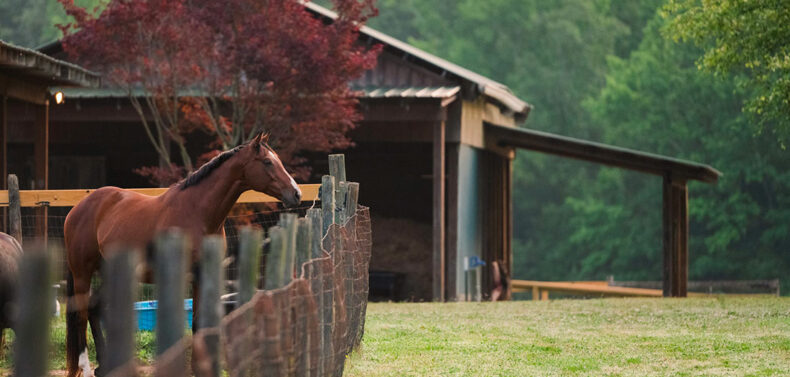Horses have been the faithful companions of humans for centuries, helping to cultivate food, participate in sport and even enter battle. This treasured human-horse connection has even extended into equine-assisted therapy, an experiential treatment and healing approach that has steadily grown in popularity over recent years.
Because riding a horse moves the rider’s body in a manner similar to a human gait, it’s thought that this rhythmic, three-dimensional movement can activate core muscles and enhance motor skills. Cognitively speaking, riding can improve concentration, attention span, memory, problem solving and decision-making skills. And of course, the special bond created between humans and horses often fosters greater empathy, trust, self-awareness and emotional regulation.
Equine-assisted activities and therapy (EAAT) is an umbrella term that encompasses several different approaches for using interactions with horses to assist individuals in improving physical, cognitive or emotional health. Many of the therapists offering these services are certified by the Professional Association of Therapeutic Horsemanship (PATH) International.
Therapeutic horseback riding is a form of recreational therapy in which an instructor teaches an individual to actively control a horse while riding. This exercise can actively improve sensory and motor skills for better coordination, balance, flexibility, posture and muscle strength, leading to improved confidence and an overall sense of wellbeing.
Hippotherapy differs from therapeutic horseback riding in that it specifically refers to treatment tools used by licensed physical therapists, occupational therapists, or speech and language pathologists to engage a patient’s sensorimotor and neuromotor systems. For example, a speech therapist may encourage a child with a speech deficit to practice giving vocal commands to the horse while riding.
Equine-assisted learning (EAL) is an experiential learning approach that promotes the development of life skills for educational, professional or personal goals. In these sessions, lesson plans typically incorporate activities that focus on problem solving, relationship building or critical thinking.
Most focused on mental wellbeing, equine-assisted psychotherapy (EAP) is an emerging treatment whereby mental health professionals work with clients to address emotional, cognitive, behavioral or other psychological concerns. This form of therapy often includes grooming, feeding and ground exercises with horses in combination with counseling to process complex feelings. EAP may be beneficial in addressing behavioral issues, substance abuse, eating disorders, depression, anxiety, trauma and communication issues. Due to limited quantitative data around the efficacy of using EAAT for mental health purposes, it’s widely advised that it should not replace traditional health care, though it can be a beneficial supplementary tool.
Multiple nonprofits dedicated to equine-assisted therapy are located just outside of Athens.
Established in 2005 on a nine-acre farm in Watkinsville, Butterfly Dreams Farm Equine Therapy’s mission is to bring “joy, wonder and healing to families with a wide spectrum of challenges, regardless of income level.” Speech pathologist, foster mother and lifelong equestrian Cat Thompson was inspired to found Butterfly Dreams Farm, along with co-founder Tracy Mosher, after witnessing how her daughter gained the strength to walk and the ability to communicate through riding. In memory of her daughter, the farm offers both hippotherapy and therapeutic riding sessions that are tailored for an individual’s needs.
Oconee Therapeutic Riding, also located in Watkinsville, holds a similar mission to “enrich the lives of riders of all ages and abilities by providing transformative equine-assisted therapy.” In addition to therapeutic riding, OTR offers Horse Guided Empowerment, a modality that “combines the wisdom and intuition of horses with personal growth and self-discovery.” Using ground-based activities with horses, participants are encouraged to reflect on their own behavior and emotions.
To learn more about these two nonprofits and the healing nature of horses, visit butterflydreamsfarm.org and oconeetherapeuticriding.org.
Like what you just read? Support Flagpole by making a donation today. Every dollar you give helps fund our ongoing mission to provide Athens with quality, independent journalism.










